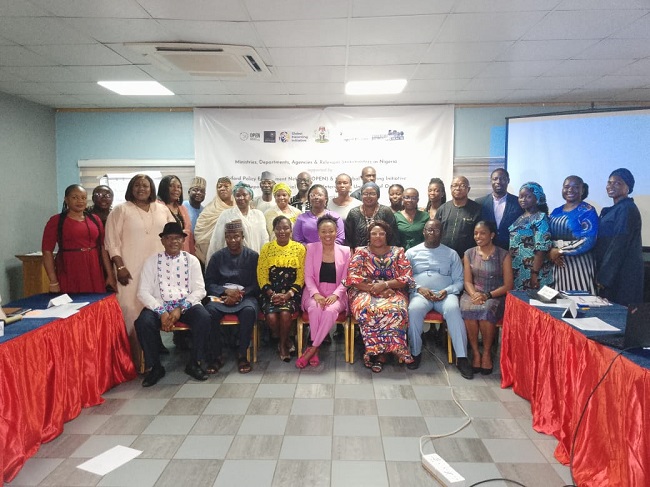The Federal Government has engaged stakeholders in evidence-based parenting support to help parents raise their children to reach their full potential in life.
The workshop was organised by the Gender Adolescent School Health and Elderly Care (GASHE) division Family Health Department of the Federal Ministry of Health, in collaboration with Oxford Policy Engagement Network (OPEN) to engage relevant stakeholders on the policy.
Speaking with the press, the Director-General of the National Agency for the Prohibition of Trafficking in Persons (NAPTIP), Prof. Fatima Waziri–Azi, explained that there are evidence-based sustainable resources that can guide parents to in turn also guide their children in the policy.
She said: “We realized that there was a gap and that gap now informed our collaboration with the global parenting Institute of Oxford, in as much as we have legislations that protect children. We also need policies that also guide and support parents.”
She enjoined parents to be patient with their children stressing that parents in rural who give their children out to family members who they feel can support their children have to keep in touch even if they can’t go, they should always call and find out how the child is doing physically and mentally.
“The policy will help reduce and control cases of child abuse and cases of child trafficking “You don’t expect people to give what they don’t have, so if we have a national policy that guides parents, and give parents the resources to protect their children from nurturing their children, I think we progressively have to transfer progression from whatever,” she said.
On prevention of child trafficking and abuse, NAPTIP DG said the government will continue to engage community leaders, sensitize them, and keep talking about it.
“We must be able when eventually we have a policy, we have to be able to translate that policy into sound bites, we have to be able to just translate that policy into readable and easy, understandable materials like Fijian, like in our local languages, even for the deaf community. We have a lot of abuse going on amongst the deaf community, so the ability for us to include them and translate these resources and policy into audio-visual materials, even for the Blind in Braille is very important,” she said.
Meanwhile, the Head of Advocacy, Global Parenting Initiative, Dr. Isang Awah while speaking on HIV/AIDS and parenting violence explained that the programme does not teach parents how to treat HIV/AIDS but it helps parents to positively parent their child, gives parents the skills to relate with their child even if they have HIV or the mother.
“The policy gives you the skills to relate with the child in a manner that support the child-like spending time with the child, don’t discriminate against the child, don’t stigmatise the child, supporting the child, showing the child positive nurturing care and all of that will go towards bonding with the child and give the child the confidence He/She needs to forge ahead in life.”
READ ALSO FROM NIGERIAN TRIBUNE
WATCH TOP VIDEOS FROM NIGERIAN TRIBUNE TV
- Relationship Hangout: Public vs Private Proposals – Which Truly Wins in Love?
- “No” Is a Complete Sentence: Why You Should Stop Feeling Guilty
- Relationship Hangout: Friendship Talk 2025 – How to Be a Good Friend & Big Questions on Friendship
- Police Overpower Armed Robbers in Ibadan After Fierce Struggle






